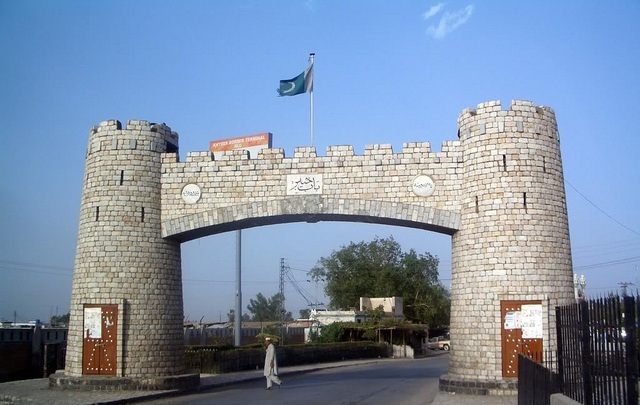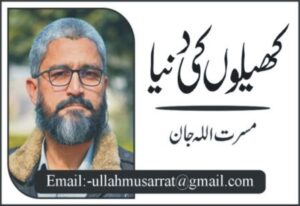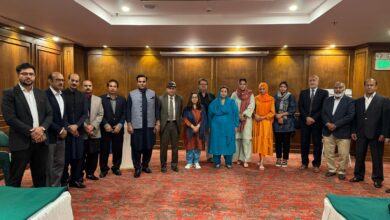“Political Influence Undermines Merit in Sports Quotas at Peshawar’s Top Colleges”


“Political Influence Undermines Merit in Sports Quotas at Peshawar’s Top Colleges”
Musarrat ullah Jan
Peshawar , In recent years, sports quotas in government colleges across Khyber Pakhtunkhwa, particularly in Peshawar, have become increasingly politicized, undermining the merit-based system that was initially intended to promote athletic talent.
Reports have surfaced that influential government officials and ministers are using their power to secure spots for their relatives and acquaintances, often at the expense of deserving students.
Several top colleges in Peshawar, including both male and female institutions, have allegedly faced pressure from high-ranking officials to admit candidates under the sports quota.
These candidates, however, lack any substantial background in sports, raising serious concerns about the integrity of the admission process.
This trend is particularly alarming because it not only deprives genuine athletes of opportunities but also erodes trust in the educational system.
The situation has become so dire that even during the COVID-19 pandemic, when former Prime Minister Imran Khan’s administration implemented strict measures; some female students with low marks were barred from admission, causing widespread panic in Peshawar.
The problem extends beyond Peshawar, with officials from other parts of Khyber Pakhtunkhwa attempting to place their children and relatives in prestigious colleges within the city. This has led to a growing sense of injustice among students and parents, who feel that the system is rigged against them.
As political interference continues to plague the sports quota admissions, the spirit of meritocracy is being compromised. The long-term impact of this trend could be devastating,
not only for the future of sports in the region but also for the credibility of educational institutions that are supposed to uphold fairness and excellence. The urgent need for reforms to ensure transparency and merit in sports admissions cannot be overstated.
If the current trajectory continues unchecked, it risks eroding the foundations of what should be an equitable and just system, further disenfranchising the youth who depend on it for their future.




